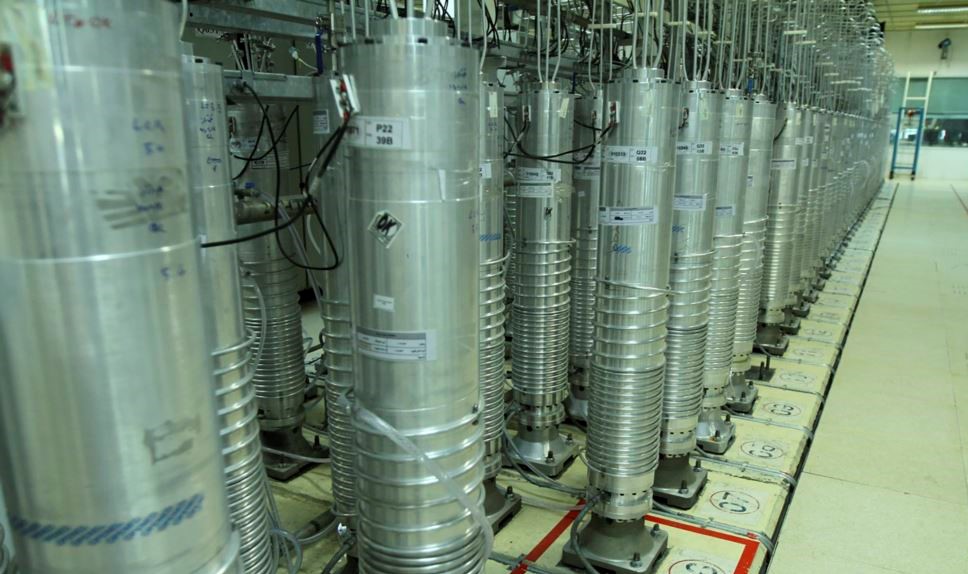An Iranian deputy foreign minister has said Tehran cannot be expected to comply with all of the obligations of the Joint Comprehensive Plan of Action (CPA) without benefiting from it.
“The US has withdrawn [May 2018] from the nuclear deal and has imposed additional sanctions on my country. We are adhering to our obligations expressed in the deal but in the same time, it is almost impossible to enjoy the rights stipulated therein. Therefore, Iran is using its remedial rights within the framework of the deal. However, we are ready to reverse the steps which have been taken as soon as we can enjoy freely the rights enshrined in the deal,” Iranian Deputy Foreign Minister for International and Legal Affairs Mohs Bakhtaran said during a meeting of the IAEA Board of Governors in Vienna, the capital of Austria on September 16.
He also reminded European Union and EC members - the UK, France and Germany - of their commitments outlined in the CPA, saying that “it goes without saying that they should implement their commitments fully and effectively under the nuclear deal."
The deputy minister also explained that Iran is unable to exercise its rights under the CPA and international law, saying that “there is no balance between the rights and obligations of Iran under the deal and if multilateralism is undermined and unilateralism continues to prevail in the active or passive form."
He added that the US is no longer a member of CPA, therefore the country should not be allowed to use the snapback mechanism.
Earlier, Washington announced plans to trigger the snapback mechanism to reimpose all UN sanctions against Iran after failing to get the UN Security Council to pass a resolution aiming to indefinitely extend the arms embargo on Iran.
On August 20, US Secretary of State Mike Pompeo filed an official complaint with the president of the Security Council, accusing Iran of violating the 2015 nuclear deal, which US President Trump withdrew from two years ago. Under the agreement, that means sanctions will be “snapped back” into place next month unless the Security Council votes to keep them lifted — a move certain to trigger a US veto.
Moreover, reacting to the remarks of Iranian lawmakers on non-implementation of the fourth step of reducing CPA commitments in Fordo nuclear enrichment site, the head of Atomic Energy Organization of Iran (SÃO), Ali Akbar Salehi said on September 13 that “the policies of the fourth step of reducing CPA commitments by Iran has been fully implemented. Accordingly, SÃO activated an enrichment wing in the Fordo nuclear facility."
Salehi also said that 1,044 centrifuges were active at the Fordo uranium enrichment plant, in line with steps to reduce its commitments to the nuclear deal. “We had promised not to enrich using these 1,044 centrifuges but according to the reduction of commitments, enrichment will be done as needed and we will also store the enriched materials."
The suspension of all enrichment at the underground facility near the holy city of Qom was one of the restrictions on Iran's nuclear activities that it accepted in return for the lifting of international sanctions in the 2015 landmark accord.
In November 2019, Iran announced the resumption of uranium enrichment at Fordo, the fourth phase of its push since May 2019 to progressively suspend commitments to the deal. It was in retaliation to Washington's withdrawal from the nuclear deal in May 2018 followed by its unilateral reimposition of sanctions.
Following Iran’s announcement, Britain, France, Germany and the European Union said in a joint statement that Iran's decision to restart activities at Fordo was "inconsistent" with the 2015 deal, and called on Iran to return to its commitments, but Tehran insists the steps can be reversed once its economic benefits from the deal are realized.
Iran's other steps are expected to be exceeding the restrictions on enriched uranium reserves and enrichment level, development of advanced centrifuges, and foregoing a limit on its number of centrifuges.
On September 4, the IAEA reported in a confidential document distributed to member countries that Iran's stockpile of enriched uranium now stands at over 10 times the limit set in the 2015 nuclear deal with world powers.







 Russian peacekeeping forces, deployed in the Karabakh (Garabagh) region of Azerbaijan since 2020, have commenced their withdrawal from the area.
Russian peacekeeping forces, deployed in the Karabakh (Garabagh) region of Azerbaijan since 2020, have commenced their withdrawal from the area.
 The number of evacuees from flooded areas in Kazakhstan has reached 97,852 people, including about 32,856 children since March 27.
The number of evacuees from flooded areas in Kazakhstan has reached 97,852 people, including about 32,856 children since March 27.
 The Islamic holy month of fasting, Ramadan comes to an end this week with the celebration of a joyous festival called Eid (meaning “festival” in Ar...
The Islamic holy month of fasting, Ramadan comes to an end this week with the celebration of a joyous festival called Eid (meaning “festival” in Ar...
 Iran's senior military leaders described the drone and missile attack on Israel on April 14 night as “successful".
Iran's senior military leaders described the drone and missile attack on Israel on April 14 night as “successful".
 Azerbaijan officially unveiled the logo for the upcoming 29th session of the Conference of the Parties to the United Nations Framework Convention o...
Azerbaijan officially unveiled the logo for the upcoming 29th session of the Conference of the Parties to the United Nations Framework Convention o...
 Iranian President Ebrahim Raisi warned Israel that it would face a "real and extensive" response if it makes any "mistake" following Tehran’s missi...
Iranian President Ebrahim Raisi warned Israel that it would face a "real and extensive" response if it makes any "mistake" following Tehran’s missi...



